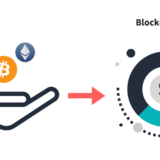Everything You Need to Know About Smart Contracts
If you’re following Ethereum and it’s developments you’ve probably heard about something called “Smart Contracts”. When talking about Ethereum’s Smart contracts, you could describe them as “applications that run exactly as programmed without any possibility of downtime, censorship, fraud or third party interference”. These contracts can help you exchange money, property, shares, or anything of value in a transparent, conflict-free way while avoiding the services of a middleman.
Some Smart Contract History
Smart contracts have been around since way before Ethereum. They were first proposed by Nick Szabo in 1994. He was a cryptographer who also helped with laying down the groundwork for Bitcoin. He was a pretty smart man! When developing smart contracts, Szabo’s goal was to somehow connect contract law and related business practices to work with internet payment protocols to complete a safe transaction between strangers over the internet. He came up and coined the term “Smart Contract”. These smart contracts would be used to lower fraud, arbitrations and enforcement costs, and other standard transaction costs.
So how does this all relate to Ethereum? Why do I need to know what a smart contract is? One sec, let add a subtitle first so it’s easier to read…
Smart Contracts and Ethereum?
Have you noticed all these ICO’s popping up? I sure have and that’s no fluke. Smart contracts are the key to creating your own cryptocurrency and are used during ICO’s to distribute the tokens to the investors once the crowdsale is over. Once you send money to an ICO, the smart contract will then determine how much of the token you should receive and it will distribute the token to your wallet automatically. If a person sends too much or too little, the smart contract will automatically refund those investors.
Here’s a great, real world example of how a smart contract works from BlockGeeks:
Suppose you rent an apartment from me. You can do this through the blockchain by paying in cryptocurrency. You get a receipt which is held in our virtual contract; I give you the digital entry key which comes to you by a specified date. If the key doesn’t come on time, the blockchain releases a refund. If I send the key before the rental date, the function holds it releasing both the fee and key to you and me respectively when the date arrives. The system works on the If-Then premise, so you can expect a faultless delivery.
What Makes a Smart Contract, Smart?
Vitalik Buterin, the programmer of Ethereum explained Smart contracts in a clear and concise way. In a smart contract approach, an asset or currency is transferred into a program “and the program runs this code and at some point it automatically validates a condition and it automatically determines whether the asset should go to one person or back to the other person, or whether it should be immediately refunded to the person who sent it or some combination of the three.”
Smart contracts have allowed us to transfer things of value to strangers over the internet with little to no risk. If you have any questions or anything you’d like to add to the discussion, leave a comment below and I’ll reply ASAP!






1 Response
[…] the NEO ecosystem has smart contracts now, new DApps are in the process of being created. The demand for GAS itself will continue to […]